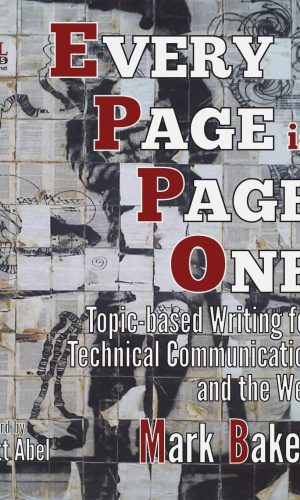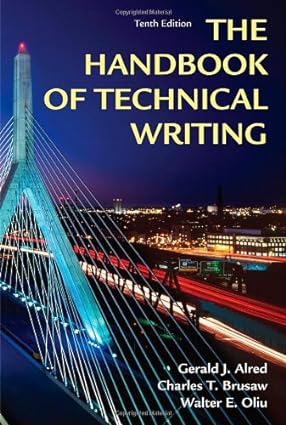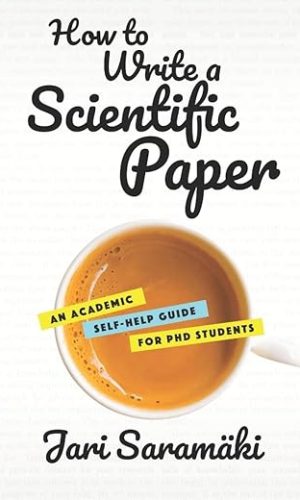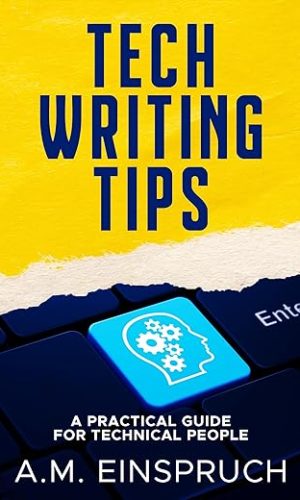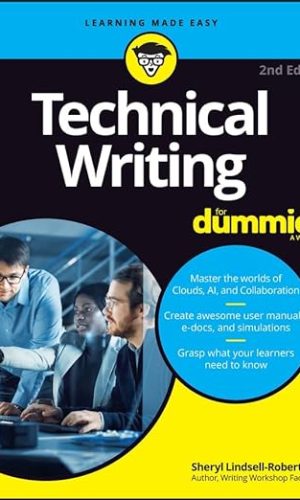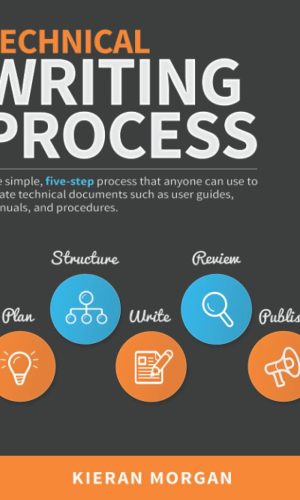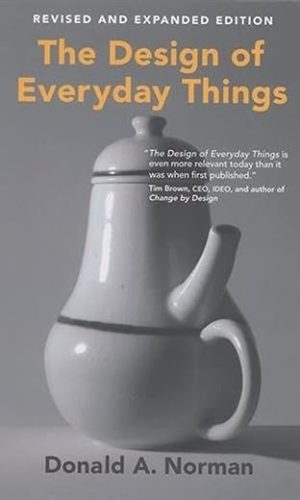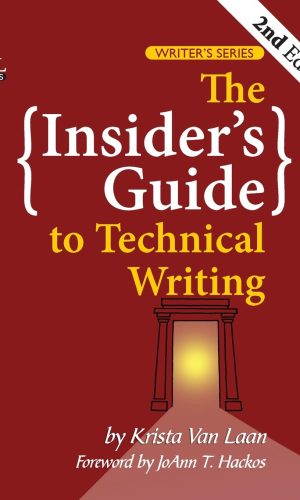Engineering Skills & Design
-
Every Page Is Page One: Topic-Based Writing for Technical Communication and the Web
The Web changes how people use content; not just content on the Web, but all content. If your content is not easy to find and immediately helpful, readers will move on almost at once. We are all children of the Web, and we come to any information system, including product documentation, looking for the search box and expecting every search to work like Google. There is no first, last, previous, next, up, or back anymore. Every Page is Page One.For technical communicators, this Every Page is Page One environment presents a unique challenge: How do you cover a large and complex product using only topics, and how do you enable your readers to find and navigate topic-based content effectively?
In this ground-breaking book, Mark Baker looks beyond the usual advice on writing for the Web, and beyond the idea of topic-based writing merely as an aid to efficiency and reuse, to explore how readers really use information in the age of the Web and to lay out an approach to planning, creating, managing, and organizing topic-based documentation that really works for the reader.
Read more
£22.30 -
Handbook of Technical Writing, Tenth Edition, The
Combining guidance for writing over 40 types of professional documents with thorough coverage of grammar, usage, and style, the “Handbook of Technical Writing” functions as both a writer’s handbook and a complete guide to technical communication. It provides quick access to hundreds of topics and scores of sample documents and visuals. New features in the tenth edition include: updated application cover letter, interviewing for a job, and resume sections; professionalism notes, providing insight to students entering the job market; digital tips; entries on adapting to new technologies, writing grant proposals, and using plain language; new index; up-to-date documenting sources; and, more model documents.Read more
£31.50 -
How to Write a Scientific Paper: An Academic Self-Help Guide for PhD Students
Writing a scientific paper can be tough, especially for Ph.D. students. There are countless choices to be made, from selecting the precise words to convey your ideas to capturing the true significance of your results. It is no wonder that writing a paper can feel overwhelming. But a systematic approach helps.
This book serves as your friendly guide to the writing process, making it more manageable by breaking it down into concrete, actionable steps. With its top-down, step-by-step approach, the book helps you identify the main focus of your paper and construct a cohesive storyline that supports it. Instead of overwhelming you with technicalities, the book provides practical and useful advice.
You’ll learn how to craft the abstract, outline each section of the paper effectively, and transform the outline into a quick-and-dirty first draft and ultimately a polished manuscript. The book also offers guidance on overcoming writer’s block and navigating critical reviews.
Here is what you get:
- A complete step-by-step plan for writing research papers, from choosing which results to include to wrapping up the paper in the Discussion section
- Concrete, actionable, and practical advice, from a paragraph-level template for the Introduction to guidance on preparing plots and figures
- Lots of writing tips, from placing signposts in your text to shortening and straightening your sentences
This book is tailored specifically for Ph.D. students who are aiming to write journal articles based on their research results. However, its insights and guidance can be highly beneficial and recommended to academics at all levels.
The book includes:
PART I: STORY
1. How To Choose The Key Point Of Your Paper
2. How To Choose The Supporting Results
3. How To Write The Abstract
4. How To Choose The TitlePART II: OUTLINE
5. The Power Of Outlining
6. How To Write The Introduction, Part I: Structure
7. How To Write The Introduction, Part II: A Four-Paragraph Template
8. How To Write The Introduction, Part III: The Lede
9. How To Write The Materials And Methods
10. How To Write The Results, Part I: Figures
11. How To Write The Results, Part II: Text
12. How To Write The DiscussionPART III: WORDS
13. How Does Your Reader Read?
14. How To Write Your First Draft
15. How To Edit Your First Draft
16. Tips For Revising Content And Structure
17. Tips For Editing SentencesPART IV: IT’S NOT OVER YET
18. How To Write The Cover Letter
19. How To Deal With ReviewsAbout the author
I am a professor of computational science and an experienced academic with around 100 published papers. My research is interdisciplinary, to say the least: I have studied the social fabric of smartphone users, the genetic structure of ant supercolonies, the connectome of the human brain, networks of public transport, and the molecular biology of the human immune system, to name a few. I am also interested in scientific writing as a craft. So one could say that I have a broad range of interests—or that I just can’t choose, but that’s exactly how I like it!
Read more
£11.40 -
SEO 2014: Includes How to Recover From Penguin, Panda or Manual Penalties (EZ Website Promotion Book 4)
Search Engine Optimization 2014
SEO 2014: Includes How to Recover From Penguin, Panda or Manual Penalties (EZ Website Promotion Series)
In the first section of this SEO book, healthy and effective Search Engine Optimization practices are discussed to help your website rank higher, and secure a steady stream of FREE Traffic, while avoiding potential penalties that could be placed on your site for a breach of the search engine rules and guidelines.
Later, this book examines recent important search engine updates that could have had (or will have) a negative impact on your 2014 website rankings and beyond, along with corrective strategies for website recovery after a hit from Panda or Penguin updates.
Finally, SEO 2014 takes a look at the process of identifying and recovering from Manual actions that could be placed against your website by Google’s Web Spam Team if you, or someone working on your behalf (SEO consultant etc), has employed unethical black hat techniques in the past.
Now, more than ever, quality on-page search optimization is critical to obtaining high search rankings, alongside quality content and the end-user experience. SEO 2014 brings this information to you in a direct and easy to understand way, arming you with the tools required to climb the search rankings and significantly boost your website traffic.
Read more
£0.90 -
Tech Writing Tips: A Practical Guide for Technical People
Struggling to write technical documents? Learn practical tips that transform this complicated task into a clear and simple process.
Tech Writing Tips: A Practical Guide for Technical People is a comprehensive, yet accessible, handbook that simplifies the process of writing technical documents. Filled with useful examples, easy-to-follow explanations, and interesting insights, this guide makes technical writing enjoyable and can be immediately applied to your specific work. By implementing these techniques, you’ll soon see improvements in your documents, making them clearer, more concise, and effective.
Read Tech Writing Tips to transform your technical writing and create better documents.
Read more
£6.60 -
Technical Writing For Dummies
Learn to document the technology that makes the world go
Technical Writing For Dummies is a master class on how to build a career writing user manuals, e-learning, streaming, simulations, and more. It even zooms into the metaverse. Whether you’re new to the field, a seasoned professional, or a technical person who needs to write, this guide arms you with the skills you need to cash in on this flourishing world of technical writing. This isn’t your average how-to. It’s a compendium of innovative industry knowledge that will help you set yourself apart with the latest trends and best practices in technical writing. As a tech writer, you’ll need a robust skillset that allows you to offer clear and concise documentation for just about anything. This new edition of Technical Writing For Dummies—updated for all of today’s tech writing advances—can get you there.
- Uncover the basics of technical writing and master common documentation types
- Get insight into the career paths available to tech writers today
- Discover new remote collaboration options and cloud-based tools for technical writers
- Learn how to elevate your documents for high search engine optimization (SEO) rankings
- Improve your craft to connect with diverse, global audiences
Whether you’re a technical writer or technical professional who needs to write—you can learn the best practices of effective technical writing, as well as how to navigate its various formats and platforms, thanks to this handy Dummies guide.
Read more
£16.20 -
Technical Writing Process: The simple, five-step guide that anyone can use to create technical documents such as user guides, manuals, and procedures
The Technical Writing Process is a simple, five-step process that can be used to create almost any piece of technical documentation such as a user guide, manual or procedure. It’s suitable for a wide range of audiences: aspiring technical writers and students of technical writing, non-writers who find themselves assigned with the task of creating technical documentation, established writers who want to bring more structure to their work, and anyone managing a documentation project.Read more
£16.70 -
The Design of Everyday Things, revised and expanded edition (The MIT Press)
Even the smartest among us can feel inept as we try to figure out the shower control in a hotel or attempt to navigate an unfamiliar television set or stove. When The Design of Everyday Things was published in 1988, cognitive scientist Don Norman provocatively proposed that the fault lies not in ourselves, but in design that ignores the needs and psychology of people. Fully revised to keep the timeless principles of psychology up to date with ever-changing new technologies, The Design of Everyday Things is a powerful appeal for good design, and a reminder of how — and why — some products satisfy while others only disappoint.Read more
£17.10 -
The Insider’s Guide to Technical Writing
The first edition of Krista Van Laan’s popular The Insider’s Guide to Technical Writing has guided a generation of technical writers who are either starting out or seeking to take their skills to the next level. This classic has now been updated for the technical writer of today. Today’s tech writers truly are technical communicators, as they build information to be distributed in many forms.
Technical communication requires multiple skills, including an understanding of technology, writing ability, and great people skills. Wherever you are in your journey as a technical communicator, The Insider’s Guide to Technical Writing can help you be successful and build a satisfying career.
Read more
£25.90

